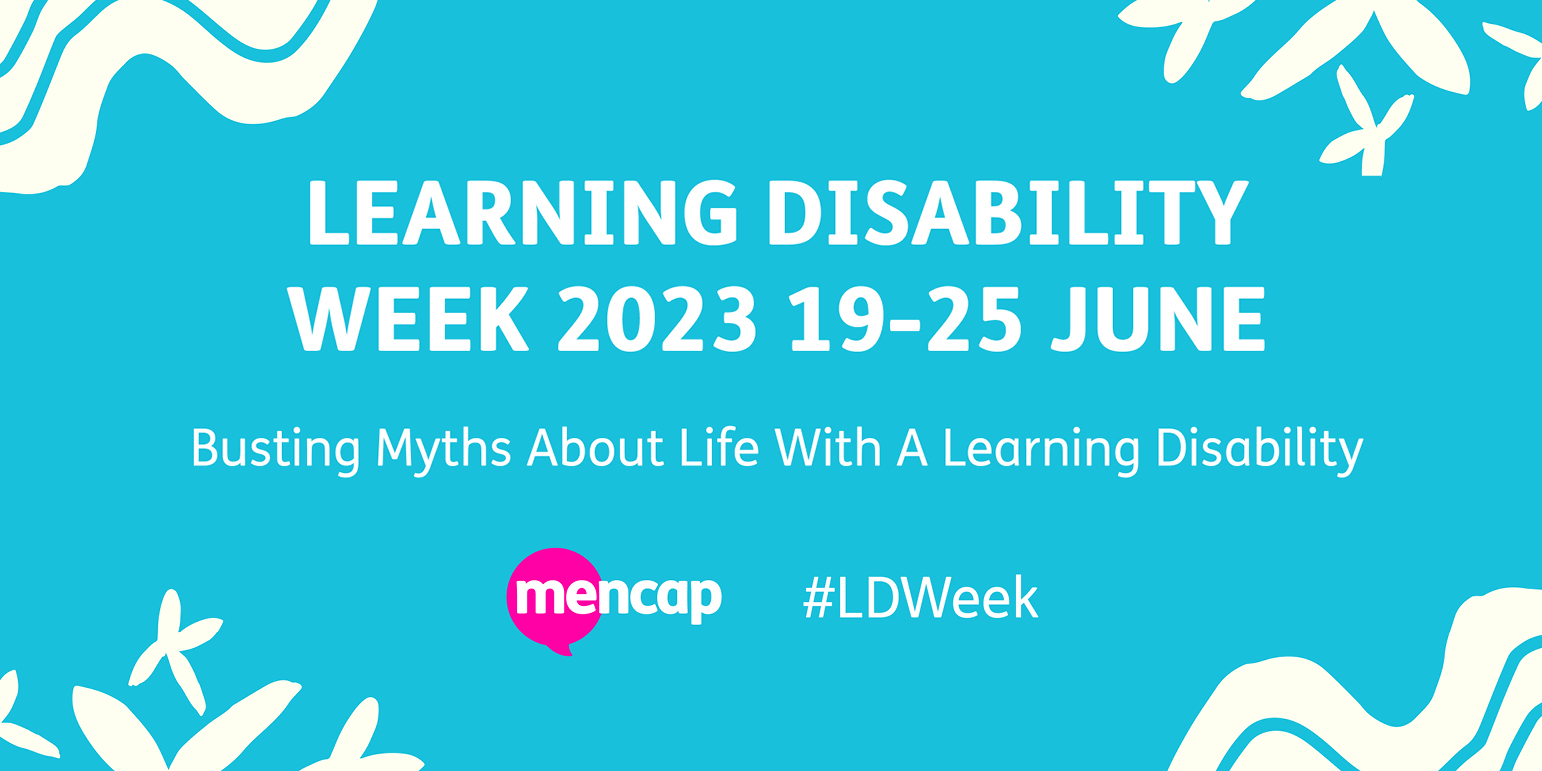16 June 2023
Learning Disability Week 19-25 June 2023
It’s Learning Disability Week this week, 19-25 June 2023, and the theme for this year is ‘myth busting’. It is an annual event that was established by Mencap to: Educate and raise awareness of...

It’s Learning Disability Week this week, 19-25 June 2023, and the theme for this year is ‘myth busting’. It is an annual event that was established by Mencap to:
- Educate and raise awareness of learning disabilities
- Smash stigmas and end discrimination
- Fight and campaign for a fair society
Why is the theme about myth busting?
The theme this year has been picked to demonstrate that people with a learning disability can achieve amazing things, and alter the misconception about what they can do. This also brings to light the stigma people face regularly.
It is important to create an inclusive environment and by celebrating Learning Disability Week, it provides the opportunity to reflect on the challenges faced by people with learning disabilities and promote a more inclusive society.
Also, it helps us honour their unique abilities and raise awareness about the importance of providing equal opportunities for everyone who is neurodiverse to thrive.
Understanding Learning Disabilities
Learning disabilities are neurological differences that affect how individuals process and acquire information. They can impact a person's ability to read, write, listen, speak, reason, or perform mathematical calculations. It is important to note that learning disabilities are not indicative of a person's intelligence or potential; they simply present unique challenges that require tailored support. There are many disabilities, including:
- Attention deficit-hyperactivity disorder (ADHD) – this affects people’s behaviour, and anyone with ADHD can be restless, could have concentration problems and may be impulsive (NHS)
- Dyscalculia – someone who has this condition will have trouble with understanding numbers, and therefore could struggle with mathematics (BDA)
- Dyslexia – a person with dyslexia may struggle with reading and writing, as it affects the skills associated with these. People with dyslexia could also have issues with phonological awareness, verbal memory and verbal processing speed (BDA)
- Dyspraxia (developmental co-ordination disorder (DCD) – this is a disorder that affects movement and co-ordination, such as balance, playing sports or driving a car. People may also struggle with fine motor skills, including writing and using small equipment (NHS)
A person could have one of these, or they could have a combination of multiple conditions. And there are variations of scale, so people can have a mild learning disability, or it could be severe.
Often a learning difficulty will present itself during childhood, and can be a reason why there are problems in a classroom. But in some people, it can take a while to get a diagnosis.
How can you get involved Learning Disability Week?
There are many resources on the Mencap website, and they have activities taking place every day, during the week, as follows:
- Monday 19 June – Campaigning
- Tuesday 20 June – Sport
- Wednesday 21 June – Employment and internships
- Thursday 22 June – Intersectionality
- Friday 23 June – Representation
- Saturday 24 June – Community and volunteering
- Sunday 25 June – Celebrating busting myths
Why are we raising awareness of Learning Disability Week?
At ILX, we understand that people learn differently, so we have developed different training delivery methods for our accredited and non-accredited training. We also have worked hard to ensure that it is accessible. But we also recognise that, as more research and information becomes available, there is more we can do to enhance our learning content to be effective for neurodiverse people.
We are keen to raise awareness not only externally, but internally through training and development, so we can understand what is needed.
We are also committed to diversity, equality and inclusion, which is why we have a working group who meet regularly to discuss how we can ensure we are continually evolving our policies and working practices. This includes running an internal survey to understand the demographic of our business, and creating content such as our podcast series, where we discuss diversity and inclusion in the workplace, including why it’s important.
Learn more about our DE&I group.